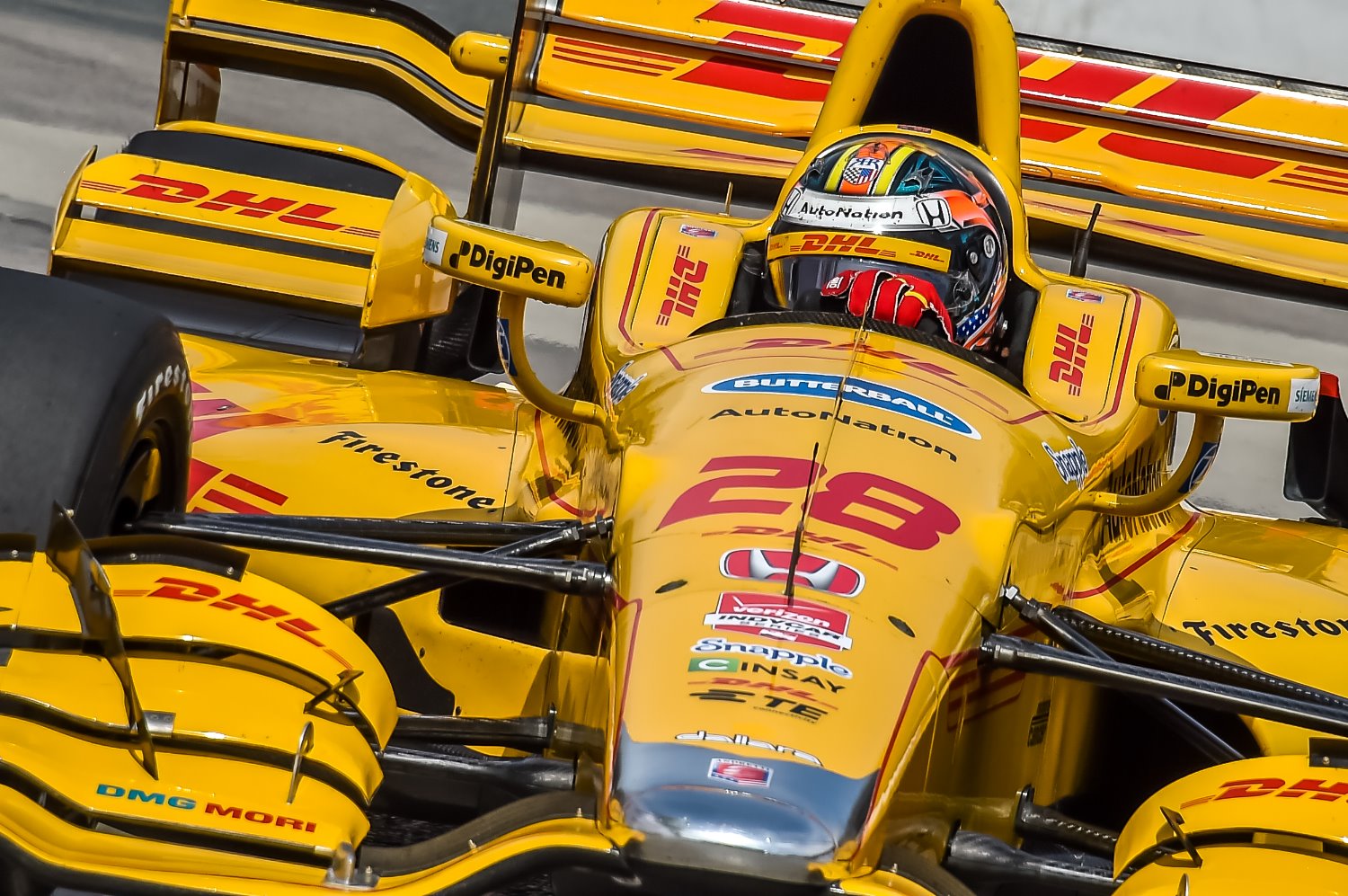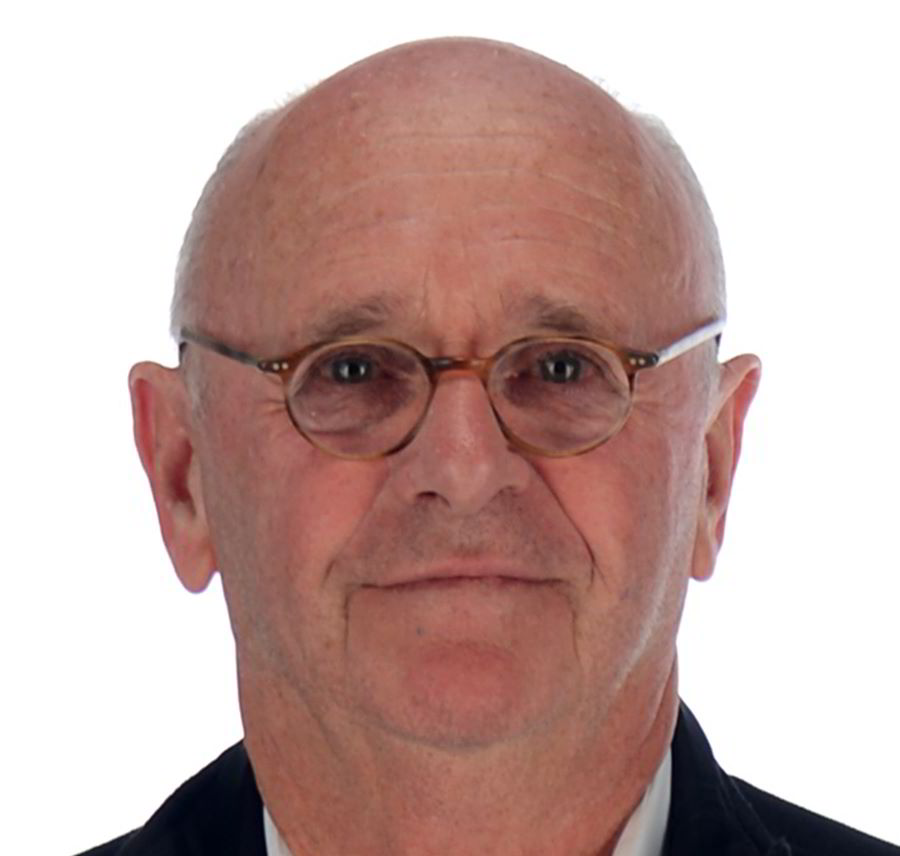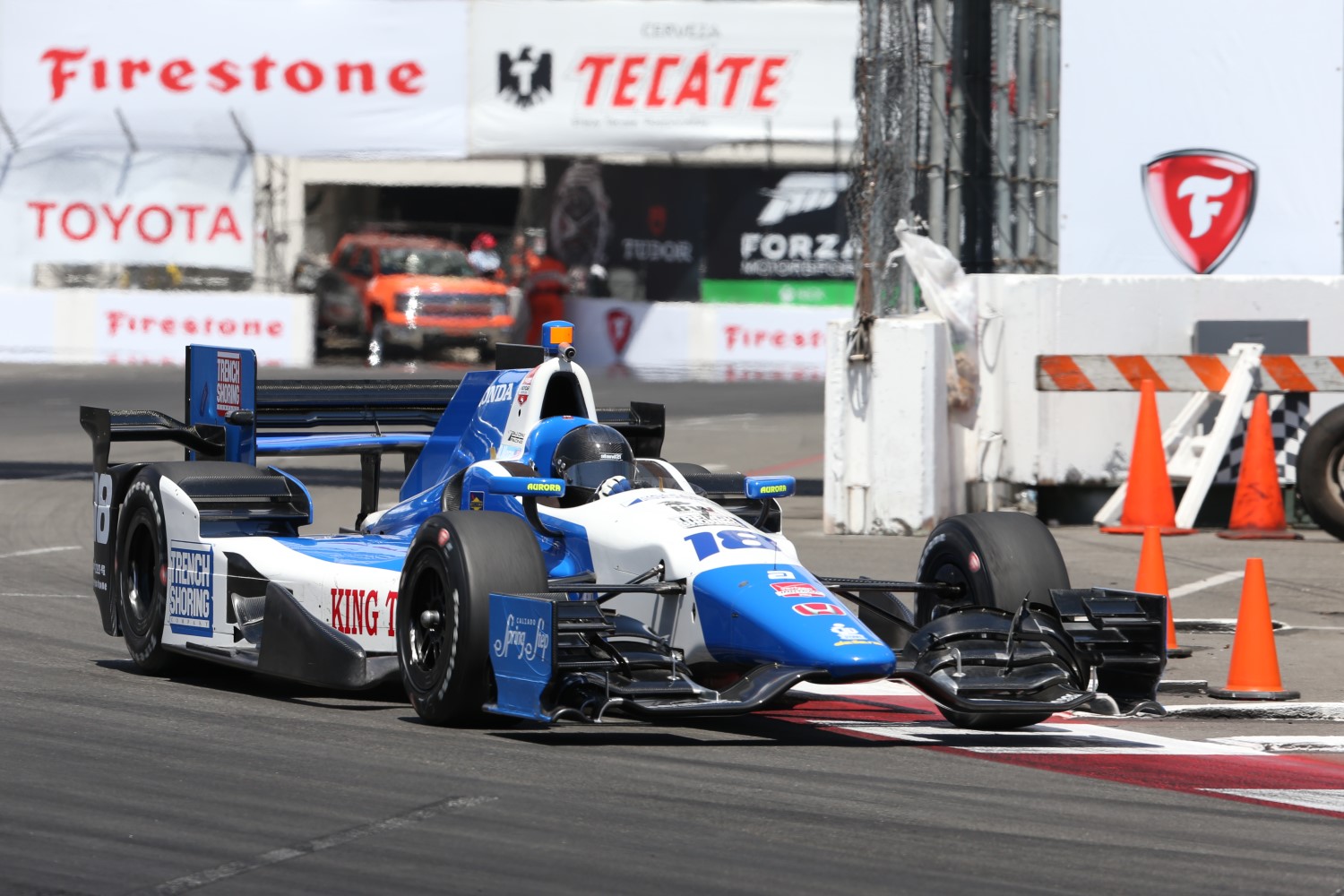Honda likely to return – throws Dallara under the bus (3rd Update)
 |
| How many Honda team sponsors will stick around if the Honda teams have little chance of winning? |
Negotiations to renew Honda as an engine supplier and one of the IndyCar Series' biggest sponsors are coming down to the wire with only six races remaining in the 2015 season.
If Honda leaves, it would be an eight-figure annual blow to the open-wheel series. Honda, which joined the series in 2003, and Chevrolet are the series' two most important corporate sponsors from a financial and marketing standpoint.
Even though discussions between Honda and IndyCar have dragged on since October and have hit more than a few bumps, Honda officials told IBJ Tuesday there's reason for optimism.
"The characterization that our return to the series is 50-50 I think exaggerates the drama," said Honda spokesman T.E. McHale. "We do have a few concerns, but IndyCar has been open to discuss those concerns. If I was going to handicap the possibility that Honda will return to IndyCar next season I'd say it's more like 70-30 or 80-20."
Honda officials' displeasure with happenings at the Indianapolis 500 in May have fueled speculation Honda would exit the series.
When several cars outfitted with Chevy aero kits went airborne at the Indianapolis Motor Speedway in May, Hulman & Co. CEO Mark Miles and his lieutenants made aero kit changes rules changes for Indianapolis 500 qualifications after a meeting with Chevy officials in which Honda officials were not included.
"Our problem was with the process," McHale said. "We feel like we had that shoved down our throat. It was a little difficult to take as a significant partner of this series."
But McHale said "that was an isolated incident," adding that Honda officials are still bullish on the IndyCar Series.
Teams outfitted with Chevy engines and aero kits this year have been kicking the butts of teams running Hondas. That's led to some tough talk from several owners running Honda-powered cars.
The much ballyhooed aero kits, which have been talked about for at least four years, were supposed to differentiate the cars and bring in more attention and fans to the series. Several team owners said those gains haven't materialized.
Two weekends ago at the IndyCar race in Texas, team owner Sam Schmidt called the aero kits a waste of money – for team owners and the manufacturers. He wondered aloud if the additional expenditure would send Honda racing from the series. Honda has already spent tens of millions of dollars on aero kit development and, if it's going to close the gap on Chevy the company, will likely have to spend millions more.
"If we lose a lot of Honda team sponsorships it's going to be really a bad thing," Schmidt told reporters at the Firestone 600 in Fort Worth.
Andretti Autosport owner Michael Andretti painted a bleaker picture, calling the situation with the aero kits "a total mess."
"This is going to break the series if we continue going the way we are going," Andretti, whose team runs Hondas, told Fox Sports earlier this month. "It's getting ridiculously expensive for the manufacturers and is totally ridiculously expensive for the racing teams."
Supplying engines and aero kits to IndyCar teams is a multi-million dollar money-losing proposition for Honda and Chevy. In theory, the car making companies shoulder losses in hopes of getting a return through the exposure they gain racing in the series.
McHale said that's still a good proposition for Honda.
"We think the IndyCar Series is the purest form of racing," McHale said. "With the diversity of courses, we think it's a much better test of driving skills and performance than other series. It gives Honda a great opportunity to demonstrate our capabilities."
And Honda officials want to be clear: They're not running from the idea of the aero kits – which debuted this year – because Chevy is beating them so badly this year.
"We recognize the thought behind having aero kits and don't challenge the concept," McHale said. "Fundamentally, being able to tell the difference between a Honda and Chevrolet on the track is a good thing."
So far, IndyCar officials have given no indication that aero kits will be discontinued – as Andretti has called for – next season. That's all right with Honda officials.
Though costs of developing IndyCar aero kits has become "unwieldy," McHale said Honda officials are committed to making big improvements this off-season.
It's important to note, he said, that Honda won only two of 16 IndyCar races in 2003 – its first in the series. In 2004 Honda-powered cars won 14 of 16 races and 12 of 17 in 2005 competing against Toyota and Chevy.
"We have seven months this offseason to take a good, hard look at the issues we have," McHale said, "and get it right next year, which I have all the faith we will." Anthony Schoettle/IBJ.com
05/05/15 A final draft of a contract for Honda’s renewal in the Verizon IndyCar Series as a manufacturer will be drawn up and sent to the company on Monday, INDYCAR President of Competition Derrick Walker told FOXSports.com.
“We’ve made tremendous progress on our talks with Honda for a renewal and the final drafts are being completed by our legal department and will be sent to Honda on Monday," said Walker. “After that, they will be able to review the contract so I’m very positive we should have a deal completed in the coming weeks.
"Honda has been a very loyal partner and supporter of IndyCar racing for a very long time and we look forward to a bright future together for both Honda and Chevrolet."
Last week, Walker told FOXSports.com Honda has “agreed in principle" to continue as an engine supplier in the Verizon IndyCar Series beyond this year. At that time, Honda Performance Development President Art St. Cyr indicated negotiations with INDYCAR are moving very well and would neither “confirm or deny" that a deal is finalized.
“We’re not going to comment too much on negotiations that are still going on but we’ve said all along that we’ve been in IndyCar going all the way back to the CART days and we want to be in open-wheel racing," St. Cyr said. “I can’t comment on that right now but we are still working on the details of a contract. That part will take a little while as we work through details.
“It’s always been Honda’s intent to remain in open wheel racing. We enjoy the competition and we want to be here and we are working out the details for that to happen."
Honda has been part of IndyCar racing since joining the CART series in 1994. It made a major move after the 2002 season when it left CART to join what was then the rival Indy Racing League, beginning competition in 2003.
Chevrolet left the series after the 2005 season and Honda was the sole engine supplier to the IndyCar Series from 2006-2011. Chevrolet rejoined IndyCar beginning in 2012 and has taken an edge in competition since that time.
Chevrolet teams and drivers have won the 2012, 2013 and 2014 Verizon IndyCar Series championships with Ryan Hunter-Reay in ’12, Scott Dixon in ’13 and Will Power last season. But Honda drivers won the Indianapolis 500 in 2012 with Dario Franchitti and last year with Hunter-Reay after Andretti Autosport switched to Honda. Tony Kanaan drove a Chevrolet to victory in the 2013 Indy 500.
“Winning the Indianapolis 500 saves your year for sure," said HPD vice president and chief operating officer Steve Eriksen. “That’s the part that people remember.
“The number one goal of our company is winning the Indy 500. It is the most important thing for us to do. So that was the design ethos behind the aero kit, was start with the Indy 500 and then everything else cascades on after that." Fox Sports
04/29/15
 |
| Walker says Honda has agreed in principle to remain to IndyCar |
Honda has "agreed in principle" to continue as an engine supplier in the Verizon IndyCar Series beyond this year, INDYCAR President of Competition Derrick Walker told FOXSports.com. Honda's current contract will expire at the end of this season.
"Both manufacturers – Honda and Chevrolet – have been very positive about coming back and we are currently working flat-out putting together a contract to give them to make that happen," Walker told FOXSports.com. "As soon as we can get that done. It's in our legal department.
"It's an agreement in principle but the devil is in the details so until we have a written contract, it's not finalized. I've been working on this since I arrived at INDYCAR in 2013. One of the first projects I worked with was on Aero Kits and getting a contract renewal with our partners."
This is the first season that in addition to supplying engines to teams in the series both Honda and Chevrolet has "Aero Kits" – additional bodywork that is added to the cars to improve aerodynamic performance.
Honda Performance Development President Art St. Cyr indicated negotiations with INDYCAR are moving very well and would neither "confirm or deny" that a deal is finalized.
"We're not going to comment too much on negotiations that are still going on but we've said all along that we've been in IndyCar going all the way back to the CART days and we want to be in open-wheel racing," St. Cyr said. "I can't comment on that right now but we are still working on the details of a contract. That part will take a little while as we work through details.
"It's always been Honda's intent to remain in open wheel racing. We enjoy the competition and we want to be here and we are working out the details for that to happen."
Honda has been part of IndyCar racing since joining the CART series in 1994. It made a major move after the 2002 season when it left CART to join what was then the rival Indy Racing League, beginning competition in 2003. Chevrolet left the series after the 2005 season and Honda was the sole engine supplier to the IndyCar Series from 2006-2011. Chevrolet rejoined IndyCar beginning in 2012 and has taken an edge in competition since that time.
Chevrolet teams and drivers have won the 2012, 2013 and 2014 Verizon IndyCar Series championships with Ryan Hunter-Reay in '12, Scott Dixon in '13 and Will Power last season. But Honda drivers won the Indianapolis 500 in 2012 with Dario Franchitti and last year with Hunter-Reay after Andretti Autosport switched to Honda. Tony Kanaan drove a Chevrolet to victory in the 2013 Indy 500.
"Winning the Indianapolis 500 saves your year for sure," said HPD vice president and chief operating officer Steve Eriksen. "That's the part that people remember.
"The number one goal of our company is winning the Indy 500. It is the most important thing for us to do. So that was the design ethos behind the aero kit, was start with the Indy 500 and then everything else cascades on after that."
In 2015, Chevrolet drivers have won three of the four IndyCar contests with Juan Pablo Montoya winning the Firestone Grand Prix of St. Petersburg on March 29, Scott Dixon won the Toyota Grand Prix of Long Beach on April 19 and Josef Newgarden won the Honda Indy Grand Prix of Alabama on April 26. Honda driver James Hinchcliffe won the Indy Grand Prix of Louisiana on April 12.
Although Honda did not win the most recent race, Graham Rahal finished second and Ryan Hunter-Reay fifth in Hondas and five cars in the top 10 for its most competitive race of the season.
"I'm very confident that we will have a contract to remain with IndyCar," Eriksen said.
With Honda and Chevrolet being locked down the focus can turn to finding a third engine manufacturer willing to join forces with INDYCAR.
"We have always gone after a third – we have never stopped that," Walker told FOXSports.com. "We've had some conversations with a couple that have asked all the right questions. They haven't said to us yet, ‘Hey, we might be going to do it.' We've had some good discussions but it's a ways off.
"If I'm a manufacturer I might want to know more about what we will be doing in 2018 (when a new car and engine platform are expected to be implemented) I would actually want to know more. We are working through that." Bruce Martin/Fox Sports
04/26/15
 |
| Honda appears to be less-than-thrilled with Dallara's design |
You might recall AR1 reporting from Baltimore in 2013 that part of the hold up with finalizing the aero-kits deal then was Chevrolet and Honda not happy with the role of Dallara in the process. In particular, the manufacturers (one more vociferously than the other) were balking at the notion that their name would be attached to a design in which they were forced to outfit with many Dallara parts.
Well, according to this article by Curt Cavin of the Indianapolis Star, we are seeing this concern come to fruition. As Honda has been woefully behind Chevrolet to begin the season (Chevy cars will roll off in positions 1-7 today), the Japanese marque has also been scrutinized for flapping parts, numerous of which came detached from the car during the season opener at St. Pete, in which a woman was injured by debris flying into the spectator area.
Further, speculation has been rife in recent weeks that Honda is on its way out of the Verizon IndyCar Series.
As for rumors of Honda leaving "We are moving along on a very positive path towards extending our relationship with IndyCar," said chief operating officer of Honda Performance Development Steve Eriksen. "We're going through the final legal steps in that process to get that done.
"If you asked what are the realistic chances that we'll extend, I'll say it's very high." If true, that is excellent news for the series.
As for its underperforming body-kits, Eriksen elaborated what he believed the source of the problem to be. "You don't design around a bending, collapsing spec part," Eriksen said talking about the Dallara-designed spec part. "You expect the part will be sufficient for the task."
Yes, make no mistake: there was nothing subtle about that. Eriksen threw Dallara right under the bus. While this could be a deliberate tactic to gain more control over the design of the body kits, with contract negotiations ongoing, Eriksen has revealed something Honda was hesitant about all the time: the role of Dallara in the introduction of the body kits.
Also, it’s important to keep in mind, that all along Chevrolet was more in favor of the body kits than Honda.
Now, there's nothing exactly firm we can conclude from all this and I suppose we'll see where this ultimately goes. Although it appears Honda is looking to re-up, it likewise appears they might be looking to do so under very different terms. And the question isn't so much whether the series can accommodate them, but whether they can afford not to.
Brian Carroccio reporting for AutoRacing1
